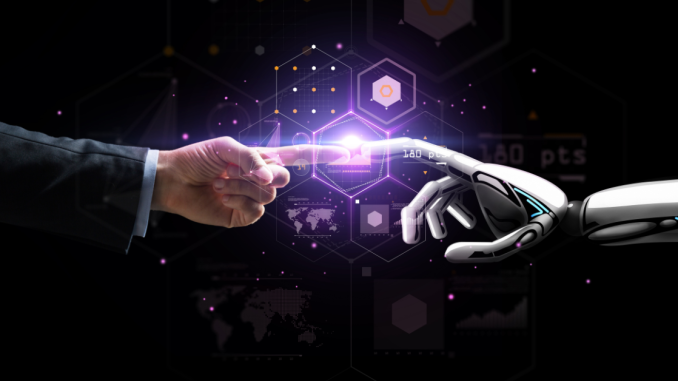
Introduction
The global job market is undergoing a profound transformation, driven by the rapid advancement of artificial intelligence (AI) and automation technologies. As we stand on the precipice of the Fourth Industrial Revolution, it is becoming increasingly clear that the future of work will be vastly different from what we know today. In this article, we will explore how AI and automation are reshaping the global job market and the implications this has for workers, businesses, and society as a whole.
The Rise of AI and Automation
AI and automation have made remarkable strides in recent years, thanks to breakthroughs in machine learning, robotics, and data analytics. These technologies are no longer confined to science fiction; they are becoming integral to various industries and sectors. From self-driving cars to virtual personal assistants, AI is permeating our lives in ways we couldn’t have imagined a decade ago.
One of the most significant impacts of AI and automation is their ability to perform repetitive and routine tasks more efficiently and accurately than humans. This capability has the potential to revolutionize industries such as manufacturing, logistics, and customer service. While this will undoubtedly lead to increased productivity and cost savings for businesses, it also raises important questions about the displacement of human workers.
The Disruption of Traditional Jobs
As AI and automation continue to advance, some traditional jobs are at risk of being automated out of existence. Routine tasks like data entry, assembly line work, and basic customer support can now be handled by machines. This shift will undoubtedly lead to job displacement in certain industries, and workers in these roles will need to adapt to remain relevant in the job market.
However, it’s crucial to recognize that AI and automation also bring new opportunities. These technologies create jobs in areas such as AI development, data science, machine maintenance, and cybersecurity. As automation takes over mundane tasks, human workers can focus on more creative and complex tasks that require critical thinking, problem-solving, and emotional intelligence.
Upskilling and Lifelong Learning
To thrive in the future job market, individuals must embrace the concept of lifelong learning. The skills that are in high demand today may become obsolete tomorrow, and workers must be prepared to adapt. Upskilling and reskilling will be essential for staying competitive in the job market.
Many organizations are recognizing the importance of investing in employee training and development. Upskilling programs can help workers transition into new roles within the same company, reducing the negative impacts of automation-related job displacement.
Human-AI Collaboration
Rather than viewing AI and automation as a threat, we should embrace the idea of human-AI collaboration. These technologies have the potential to enhance human capabilities, making workers more efficient and productive. For example, in healthcare, AI can assist doctors in diagnosing diseases, while in finance, it can analyze vast amounts of data to inform investment decisions.
The successful integration of AI and automation into the workforce will require a rethinking of job roles and responsibilities. Companies that leverage these technologies to augment human capabilities will likely be better positioned for success in the future.
Social and Economic Implications
The transformation of the global job market has broader social and economic implications. Income inequality could widen if certain workers are left behind by automation, while others benefit from higher-paying, technology-related roles. Policymakers and businesses will need to consider strategies to address these disparities, such as universal basic income, workforce retraining initiatives, and taxation policies that account for automation.
Conclusion
The future of work is being shaped by AI and automation, and the global job market is in a state of flux. While there are challenges and uncertainties ahead, there are also numerous opportunities for individuals and organizations to adapt and thrive in this new era. Embracing lifelong learning, promoting human-AI collaboration, and addressing the social and economic implications of automation are key steps in ensuring a more equitable and prosperous future of work. As we navigate this transformative period, it’s essential to approach these changes with adaptability, creativity, and a commitment to harnessing the power of technology for the betterment of society.